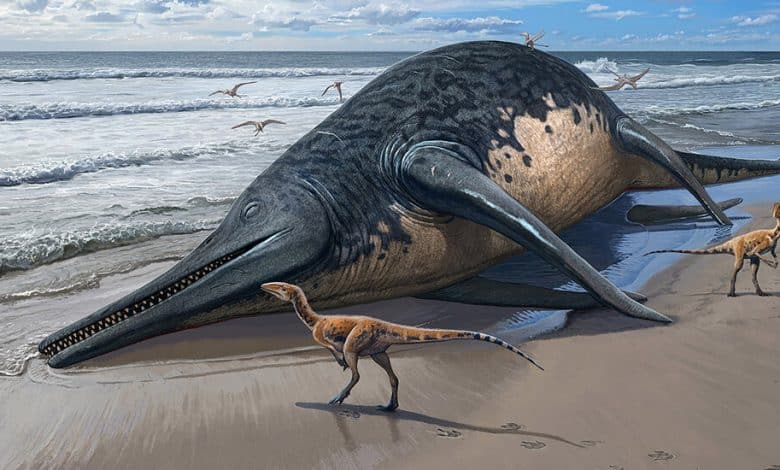An 11-Year-Old Girl’s Fossil Find Is the Largest Known Ocean Reptile

In 1811, a 12-year-old girl named Mary Anning discovered a fossil on the beach near her home in southwestern England — the first scientifically identified specimen of an ichthyosaur, a dolphin-like, ocean-dwelling reptile from the time of the dinosaurs. Two centuries later, less than 50 miles away, an 11-year-old girl named Ruby Reynolds found a fossil from another ichthyosaur. It appears to be the largest marine reptile known to science.
Ms. Reynolds, now 15, and her father, Justin Reynolds, have been fossil hunting for 12 years near their home in Braunton, England. On a family outing in May 2020 to the village of Blue Anchor along the estuary of the River Severn, they came across a piece of fossilized bone set on a rock.
“We were both excited as we had never found a piece of fossilized bone as big as this before,” Mr. Reynolds said. His daughter kept searching the beach, he added, “and it wasn’t long before she found another much larger piece of bone.”
They took home the fragments of bone, the largest of which was about eight inches long, and began their research. A 2018 paper provided a hint at what they’d found: In nearby Lilstock, fossil hunters had discovered similar bone fragments, hypothesized to be part of the jaw bone of a massive ichthyosaur that lived roughly 202 million years ago. However, the scientists who’d worked on the Lilstock fossil had deemed that specimen too incomplete to designate a new species.
Mr. Reynolds contacted those researchers: Dean Lomax, at the University of Bristol, and Paul de la Salle, an amateur fossil collector. They joined the Reynolds family on collecting trips in Blue Anchor, digging in the mud with shovels. Ultimately, they found roughly half of a bone that they estimate would have been more than seven feet long when complete.